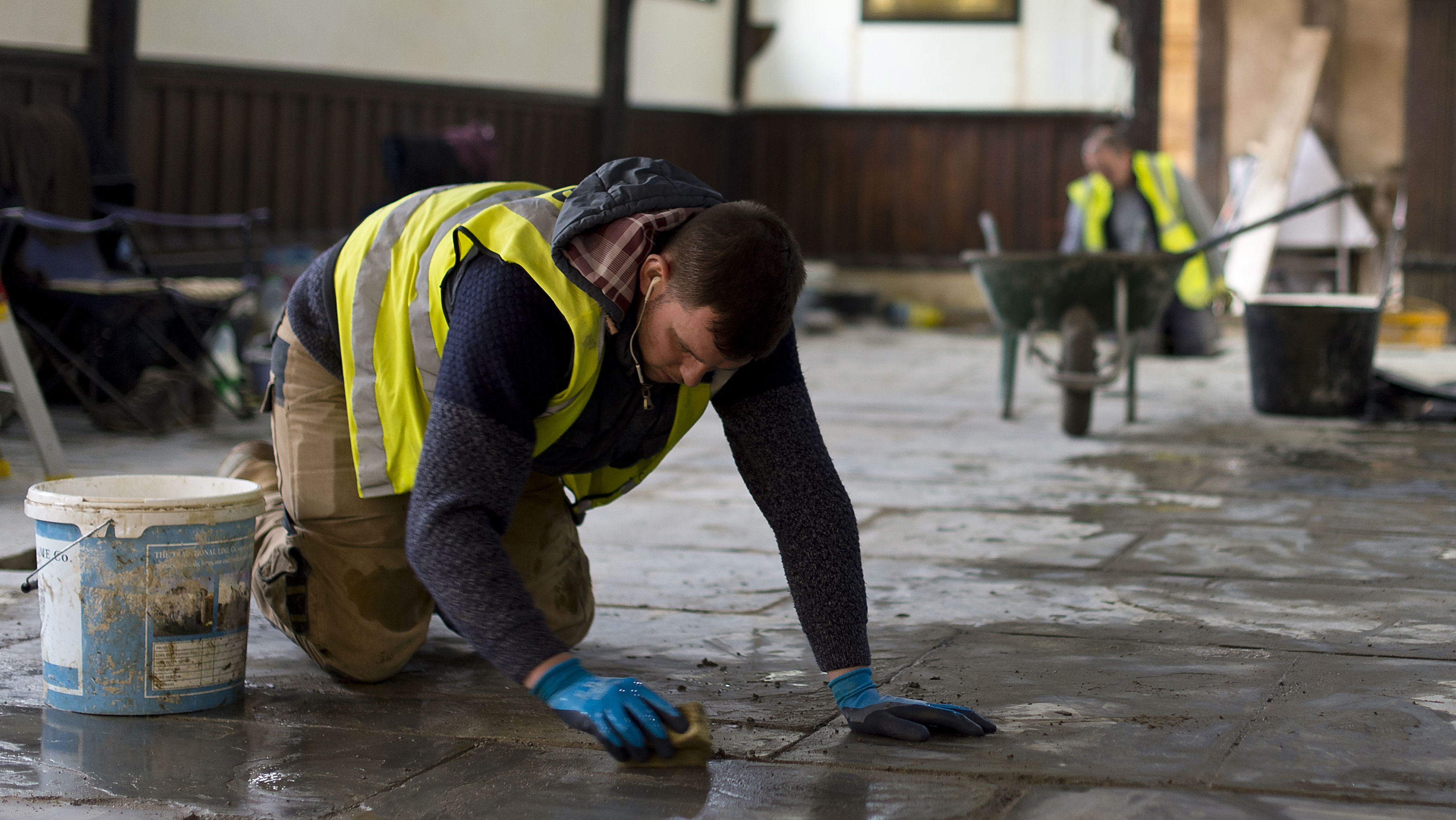Seven million UK workers living in poverty
High rents, low wages and benefit cuts have led to a record high, says Joseph Rowntree Foundation

A free daily email with the biggest news stories of the day – and the best features from TheWeek.com
You are now subscribed
Your newsletter sign-up was successful
One in eight UK workers are living in poverty due to of a combination of high rents, low wages and benefit cuts, according to a new report.
Research by the Joseph Rowntree Foundation, based on the latest statistics, from 2014/15, reveals a record 3.8 million people with a job are in poverty, where their income, adjusted for household size, is below 60 per cent of the median after housing costs have been deducted.
In total, a 7.4 million people, including 2.6 million children, are living in deprivation despite being part of working households, an increase from a little more than five million in 2004/05.
The Week
Escape your echo chamber. Get the facts behind the news, plus analysis from multiple perspectives.

Sign up for The Week's Free Newsletters
From our morning news briefing to a weekly Good News Newsletter, get the best of The Week delivered directly to your inbox.
From our morning news briefing to a weekly Good News Newsletter, get the best of The Week delivered directly to your inbox.
The number from workless families, which includes pensioners, carers and lone-parent families, has fallen, however.
The report states that the problem is being driven by the housing crisis, especially in the private rented sector, where the numbers living in poverty have doubled to 4.5 million in a decade, reports the Daily Telegraph.
"Failures in the housing market are a significant driver of poverty," the study says. "This is primarily, but not entirely, due to costs."
Helen Barnard, the head of analysis at the Joseph Rowntree Foundation, said: "The economy has been growing since 2010 but during this time, high rents, low wages and cuts to working-age benefits mean that many families, including working households, have actually seen their risk of poverty grow," said.
A free daily email with the biggest news stories of the day – and the best features from TheWeek.com
"This report shows that people on low incomes cannot rely on economic growth and rising employment alone to improve their financial prospects."
There is better news on pensioner poverty, says The Guardian, with 400,000 fewer people living in poverty compared to a decade ago, despite an increase of 1.7 million more people in that age bracket.
The foundation also suggests the biggest losers between now and 2020 will be lower income families, with the poorest third likely to see incomes drop.
The research "casts a spotlight on the pressures faced by the 'just about managing' group which Theresa May has promised to help," says iNews's Nigel Morris.
The BBC's economics editor Kamal Ahmed says the study underlines May's "poverty headache" in her "quest for an economy that works for all".
He adds: "Millions of people are endeavouring to do an honest day's (or night's) work for not very much pay at all. This is the issue of our age - the sense that despite effort expended, people feel 'the system' is against them."
A government spokesman said: "Since 2010, the number of people living in poverty has fallen by 300,000 but we know there's more to do. We're increasing the National Living Wage and taking millions of people out of income tax, to make sure it always pays to be in work."
-
 The environmental cost of GLP-1s
The environmental cost of GLP-1sThe explainer Producing the drugs is a dirty process
-
 Nuuk becomes ground zero for Greenland’s diplomatic straits
Nuuk becomes ground zero for Greenland’s diplomatic straitsIN THE SPOTLIGHT A flurry of new consular activity in Nuuk shows how important Greenland has become to Europeans’ anxiety about American imperialism
-
 ‘This is something that happens all too often’
‘This is something that happens all too often’Instant Opinion Opinion, comment and editorials of the day
-
 Home Office worker accused of spiking mistress’s drink with abortion drug
Home Office worker accused of spiking mistress’s drink with abortion drugSpeed Read Darren Burke had failed to convince his girlfriend to terminate pregnancy
-
 In hock to Moscow: exploring Germany’s woeful energy policy
In hock to Moscow: exploring Germany’s woeful energy policySpeed Read Don’t expect Berlin to wean itself off Russian gas any time soon
-
 Were Covid restrictions dropped too soon?
Were Covid restrictions dropped too soon?Speed Read ‘Living with Covid’ is already proving problematic – just look at the travel chaos this week
-
 Inclusive Britain: a new strategy for tackling racism in the UK
Inclusive Britain: a new strategy for tackling racism in the UKSpeed Read Government has revealed action plan setting out 74 steps that ministers will take
-
 Sandy Hook families vs. Remington: a small victory over the gunmakers
Sandy Hook families vs. Remington: a small victory over the gunmakersSpeed Read Last week the families settled a lawsuit for $73m against the manufacturer
-
 Farmers vs. walkers: the battle over ‘Britain’s green and pleasant land’
Farmers vs. walkers: the battle over ‘Britain’s green and pleasant land’Speed Read Updated Countryside Code tells farmers: ‘be nice, say hello, share the space’
-
 Motherhood: why are we putting it off?
Motherhood: why are we putting it off?Speed Read Stats show around 50% of women in England and Wales now don’t have children by 30
-
 Anti-Semitism in America: a case of double standards?
Anti-Semitism in America: a case of double standards?Speed Read Officials were strikingly reluctant to link Texas synagogue attack to anti-Semitism